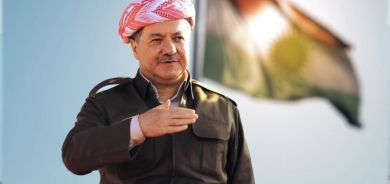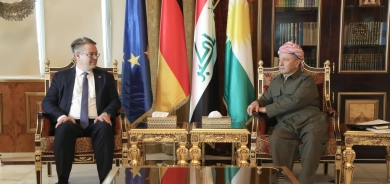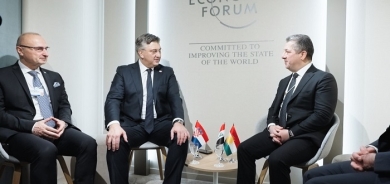The Current Situation in Iraq: Barzani Hints at Independence.

As soon as Maliki assumed power again and against the backdrop of the final US troop withdrawal at the end of 2011, relations between Baghdad and the KRG began to deteriorate. Solutions to the perennial issues of Kirkuk and the sharing of oil revenues proved elusive. In addition, since Maliki was unable to complete his new cabinet, he personally also assumed control of several leading ministries leading to charges of nascent dictatorship. Then in January 2012, Maliki issued a warrant for the arrest of Vice President Tariq al-Hashemi, the highest ranking Sunni in his Shiite-dominated government, on charges of having led death squads. Hashemi denied the charges and fled to the Kurdish region where he was granted protection. US senator John McCain, who had been the unsuccessful Republican candidate against US president Barrack Obama in 2008, noted the rising tensions and declared that “the situation in Iraq is unraveling. . . . Iraq will likely break up which would eventually lead to the formation of three different States. Although Obama’s vice president Joseph Biden would not have liked to have been reminded of it, McCain’s three-state solution was similar to what Biden had earlier advocated.
In a flurry of activity, Barzani journeyed to the United States, Turkey, and Europe for well-publicized meetings. His talks in Turkey were especially noteworthy given how relations between the two sides had improved so dramatically in the past few years. Turkey was now taking the KRG’s side in disputes with Baghdad. Turkish prime minister Recep Tayyip Erdogan even accused Maliki of fanning tensions in Iraq with the Kurds, while Maliki denounced Turkey for its “flagrant interference in Iraqi internal affairs.” The following month, Nechirvan Barzani, the new KRG prime minister and the nephew of Massoud Barzani, also journeyed to Turkey for yet another high-level Turkish-KRG meeting.
In addition, Barzani sided with Turkey in opposing the faltering Assad regime in Syria. Maliki, on the other hand, continued to support Assad. Between these two opposing positions, the divided Kurds living in Syria walked a delicate line. Nevertheless, with such Turkish support, the KRG might indeed be emboldened to secede from a crumbling Iraq.
Back in Irbil, Barzani suggested that Baghdad might use the 18 F-16 fighter jets it was scheduled to purchase from the United States to once again subject the Kurds. The KRG president demanded that Maliki agree on sharing power with his political opponents by September “or else the Kurds could consider breaking away from Baghdad.” There was a “very dangerous political crisis in the country,” and unless the impasse was broken “voters in the Kurdish region may consider a referendum for a state independent of Iraq,” proclaimed the KRG president.
Despite Barzani’s bellicosity, most observers felt that he was really maneuvering for position in post-US Iraq. Premature Kurdish independence that would be seen as helping to destroy Iraq, would be opposed by not only the United States, but all the KRG’s regional neighbors. What is more, the KRG continued to enjoy in federal Iraq all the advantages of independence without its disadvantages. It would be far better for the Iraqi Kurds to be seen as doing their utmost to keep Iraq united. Only if the Kurds’ best efforts failed and Iraq still split apart would the Kurds then be seen as having had independence forced upon them and therefore justified. In addition, the Kurds had other options to use against Maliki such as supporting a vote of no confidence against him in the Iraqi parliament. Although Iraqi president Jalal Talabani opposed a vote of no confidence, patience and astute diplomacy remained the main call words.

 Michael Gunter
Michael Gunter











